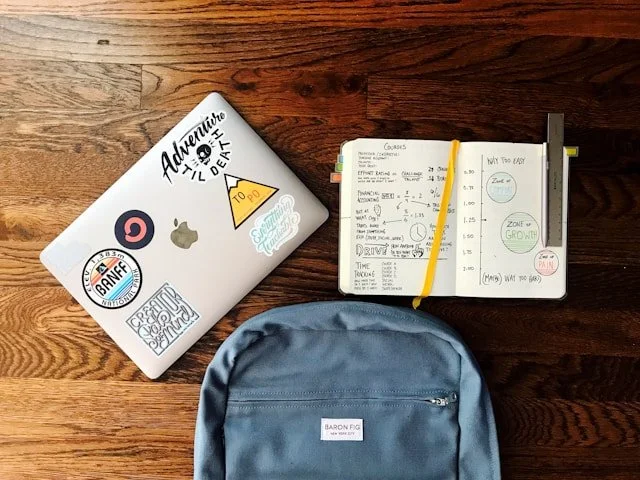Managing Academic Stress and Anxiety in Teens
Academic pressure can feel constant, especially when deadlines and exams stack up. These simple strategies can help teens feel steadier, focused, and supported.
We face different sources of stress and anxiety in our lives, and academic pressure is one of them. It can come in the form of difficult assignments, challenging course content, or worries about upcoming examinations. These pressures can lead to a certain level of stress which is a common and normal experience for many students. While stress and anxiety may be overwhelming at times, it can also be perceived as a healthy pressure that motivates you to stay focused and achieve your goals. However, striking the right balance and taking steps to manage it ensures that you are looking after your well-being.
How Stress Affects Us
It can show up in different ways – here are some of the common signs to look out for:
Feeling anxious
Difficulty concentrating
Sleep disruption (difficulty falling asleep or waking up frequently)
Feeling irritable
Low mood
Withdrawing from social activities
Physical symptoms such as shortness of breath, stomachaches, heart palpitations
These symptoms are not comprehensive, as everyone experiences stress at varied levels of intensity. However, if you notice these symptoms in yourself, the following strategies might be helpful for managing them.
Strategies to Manage Academic Stress or Anxiety
Scheduling
Juggling schoolwork, tuition classes and extracurricular activities can feel overwhelming when we only have 24 hours in a day. A handy tool to manage these responsibilities involves creating a schedule for the week. You could start by listing all your tasks and deadlines while realistically planning out how much time is needed to complete them.
(Tip: If you have a free day in your schedule, consider organising your tasks based on the required cognitive effort. For example, tackle challenging tasks at the start of the day when you are most alert, and your energy is at the peak. Save the simpler or less demanding tasks for after lunch, when you might feel a little more tired.)
Mindfulness Activities
Mindfulness is about being in the present moment and being mindful of our thoughts and emotions. Various mindfulness activities require little time and effort, making them easy to incorporate into your daily routines. Practices like muscle relaxation helps you to slow down recharge and feel more in control.
If you are curious about where to start, check out some of these mindfulness activities.
Relaxation Activities / Techniques
In addition to mindfulness, there are various relaxation techniques you could try to alleviate your stress and anxiety. Here are some simple ones that you can try.
Grounding Activity. This technique helps you focus your attention on the present moment, allowing you to redirect your thoughts away from the things resulting in stress or anxiety.
4-7-8 Deep Breathing Exercise. This simple deep breathing exercise is particularly useful and effective in alleviating any physical symptoms caused by stress such as heart palpitations and shortness of breath. (Fun fact: It also promotes a good nights sleep!)
Distress Tolerance TIPP. When we feel overwhelmed, it is common to find it challenging to engage in emotional regulation skills. TIPP activities help to reduce this overwhelming feeling and 'restore' our ability to regulate ourselves.
4. Engaging in Fun Activities
Have you taken a break yet? Setting aside time to do something fun like engaging in a hobby of interest, a sporty activity or simply “chilling” on your couch can help you recharge. Taking these breaks in between your study routine keeps you focused and refreshed. With all the fun and games, it is also important to choose your fun activities wisely. Here are a few things to be mindful of:
Keep it budget friendly.
They should be legal.
Pick something convenient that you can enjoy at least once a week.
Choose something you have complete control over.
(Tip: You could choose to engage in these activities as a reward after completing your homework or assignments – it may give you a little boost of motivation to get things done.)
5. Seek Support
Talk to a friend, a family member, or the school counsellor. Having an emotional outlet and sharing your feelings could help lighten the load. It might also be helpful to let them know what sort of support you need – whether you need a listening ear or some ideas for navigating these stressors. Either way, remember that you do not have to go through it alone!

